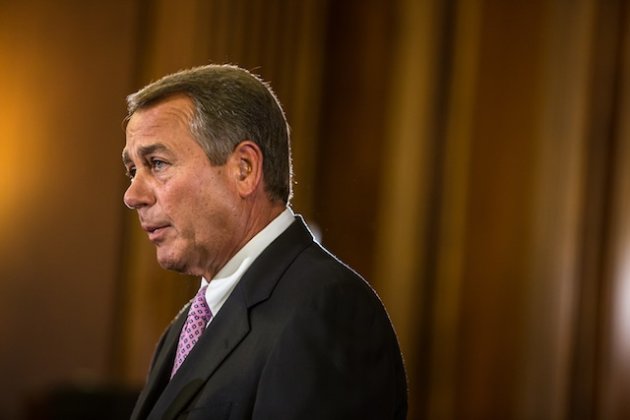NEW YPRK (AP) — So much has changed since we last heard from "Bartlett's Familiar Quotations," a decade ago.
Barack Obama was a state legislator. Sarah Palin was mayor of Wasilla. Steve Jobs had just introduced a portable music player called the iPod.
And digital books were a relic from the dot-com bubble.
The 18th edition of the venerable reference work has just been released, the first for the electronic age and a chance to take in some of the new faces, events and catchphrases of the past 10 years. General editor Geoffrey O'Brien says he has expanded upon the trend set by his predecessor, Justin Kaplan, of incorporating popular culture into an anthology once known for classical citations. Shakespeare and the Bible still reign, but room also has been made for Madonna and Michael Moore, Justin Timberlake and Jon Stewart.
"I also added a great many quotes that originated in other languages. So I would say the new edition has a more international scope," says O'Brien, an author and critic and editor in chief of the Library of America, which publishes hardcover volumes of canonical American authors.
Little, Brown and Company hopes the new Bartlett's will appeal both as an old-fashioned coffee table hardcover, some 1,400 pages, and as an ultra-portable digital reference guide. Instead of releasing an e-book edition, the publisher has developed an app that does not simply replicate the printed book, but makes it ideal for digital devices and easy to share on Facebook or Twitter.
Dozens of employees spent months working on the app, according to Brian Singh, mobile analyst for Little, Brown's parent company, Hachette Book Group. Some 20,000 quotations were categorized so those looking for a quick quote — say a love poem for a wedding speech — could simply search the word "love." The app costs $3.95 and does not include any extra material, but it does have a digital feature, Quoto, which allows users to take a favorite citation, set it against a backdrop of choice and post it online.
For the hardcover, O'Brien said he removed some old poetry and forgotten phrases to make room for about 2,500 new quotes, including several from the Iraq War. Among them are President George W. Bush's call to "Bring 'em on" in response to possible uprisings from insurgents and his declaration that he was the "the decider." The Dixie Chicks' Natalie Maines is mentioned for her on-stage remark that she was "ashamed" Bush was from Texas, as is Moore's Academy Award acceptance speech when he criticized the war and called Bush a "fictitious president."
Seven Obama quotations are listed, from his campaign slogan "Yes, we can!" to his announcement that U.S. special forces had killed Osama bin Laden. Palin's entry includes the quip from her speech at the 2008 Republican convention that the difference between a hockey mom and a pit bull was "lipstick." Job's dying words, "Wow, oh wow," are among four citations for the late Apple CEO, including a 1987 comment that "It's more fun to be a pirate than to join the Navy."
Others in Bartlett's for the first time: Christopher Hitchens ("Seek out argument and disputation for their own sake"); David Foster Wallace ("Make no mistake: irony tyrannizes us"), Stewart (his nightly signoff, "Here it is ... your moment of Zen"), Timberlake (his apology for Janet Jackson's "wardrobe malfunction" during the 2004 Super Bowl halftime show).
Barlett's is home to polished aphorisms and unintentional history: Bill Clinton's "I did not have sex with that woman, Monica Lewinsky"; Oscar winner's Sally Field's cry that "You like me!"; Obama's comments at a private fundraiser that some rural residents "cling to guns or religion." Some quotes originate from tragedy: Rodney King's plea, "Can we all get along?", as Los Angeles burned during the 1992 riots; Flight 93 passenger Todd Beamer calling out "Let's roll" as he led an uprising against Sept. 11, 2011 hijackers.
The credentials for Bartlett's are admittedly arbitrary: Space concerns, individual tastes and the uncertain definition of the word "familiar" make the book an invaluable excuse for an argument.
Larry David is in, but not Aaron Sorkin; P.J. O'Rourke, not Maureen Dowd; Jerry Seinfeld and Steve Martin, not George Carlin or Richard Pryor. The many expressions coined on "Saturday Night Live," from "Talk amongst yourselves" to "Well, excuuuuuse me!" were not mentioned. Among novelists, Richard Powers is in, but not Jonathan Franzen; Colson Whitehead, not Michael Chabon.
"I am sure that twelve different well-informed people would come up with twelve different lists of people (and more importantly of specific quotations) left out, and I am sure some of these will be strong candidates for inclusion in the next edition," O'Brien said.
Among songwriting entries, excerpts appear from Lou Reed's lyrics for "All Tomorrow's Parties" and "Heroin," but not from the more famous "Walk On the Wild Side." The Beach Boys' "Carolina, No" gets a mention, but not such anthems as "Surfin' U.S.A." and "Good Vibrations." Kurt Cobain's entry omits "Smells Like Teen Spirit" in favor of "Stay Away" and "Serve the Servants."
For movies, two quotes are included from Robert Towne's "Chinatown" screenplay, but not the immortal closing line, "Forget it Jake, it's Chinatown." One of just two entries for Nora Ephron is "I'll have what she's having," the joke from "When Harry Met Sally ..." that is widely credited to Billy Crystal. Among the favorites left out: "Well, nobody's perfect," the kicker from "Some Like it Hot"; Arnold Schwarzenegger's "Terminator" catchphrase "I'll be back"; the courtroom explosion "You can't handle the truth!" from "A Few Good Men."
"Certain lines strike me as 'familiar for being familiar' — 'You can't handle the truth' being one of them, as I can see little originality or singularity in it," O'Brien said. "The price of compactness is a certain amount of arbitrary exclusion."



